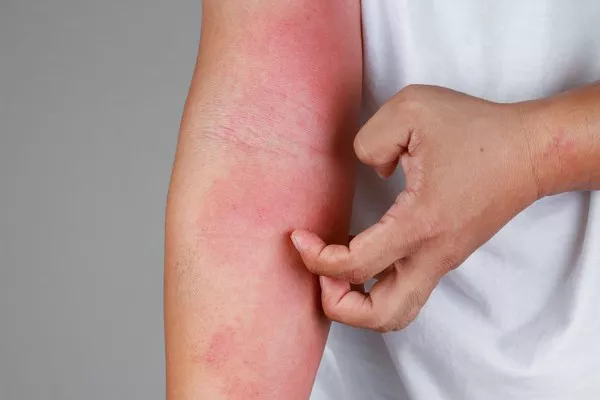Dealing with eczema, a chronic skin condition characterized by red, itchy, and inflamed patches, can be challenging. When eczema becomes infected, it adds another layer of complexity and discomfort. Infections can occur due to scratching, breaks in the skin, or bacterial colonization, leading to symptoms like increased redness, swelling, warmth, and sometimes pus-filled bumps. While treating infected eczema at home requires careful attention and adherence to proper techniques, it is possible to manage and improve the condition with the right approach. This article explores effective home treatments for infected eczema, focusing on soothing symptoms, preventing further infection, and promoting healing.
Understanding Infected Eczema
Symptoms of Infected Eczema
Infected eczema can present with the following symptoms:
1. Increased Redness and Swelling: The affected area may appear more inflamed than usual.
2. Warmth: The skin may feel warm to the touch.
3. Pain or Tenderness: Infected eczema patches can be more painful or tender.
4. Pus or Drainage: There may be yellowish or whitish fluid draining from the affected area.
5. Worsening Itching: Itching can intensify due to the infection.
Causes of Infection in Eczema
Several factors can contribute to eczema becoming infected:
1. Scratching: Persistent scratching can break the skin barrier, allowing bacteria to enter.
2. Dry, Cracked Skin: Eczema-prone skin is often dry and prone to cracks, providing entry points for bacteria.
3. Bacterial Overgrowth: Staphylococcus aureus is a common bacteria that can colonize eczema patches, leading to infection.
4. Impaired Immune Response: Individuals with eczema may have a compromised skin barrier and immune system, making them more susceptible to infections.
Treating Infected Eczema at Home
Early Recognition and Action
Early intervention is crucial in managing infected eczema. Recognizing the signs of infection and starting treatment promptly can prevent complications and promote faster healing.
Gentle Cleansing
1. Warm Compresses: Apply warm, moist compresses to the affected area for 10-15 minutes several times a day. This helps to soothe inflammation, reduce pain, and encourage drainage of any pus.
2. Mild Cleansers: Use a gentle, fragrance-free cleanser to wash the affected area. Avoid harsh soaps or cleansers that can further irritate the skin.
3. Pat Dry: After washing, gently pat the skin dry with a soft towel. Avoid rubbing, as this can aggravate the skin and worsen symptoms.
Moisturization
1. Emollients: Apply a thick layer of moisturizer to the affected area immediately after cleansing. Emollients help to hydrate the skin, repair the skin barrier, and reduce dryness and itching.
2. Occlusives: Consider using an occlusive moisturizer or ointment, which forms a protective barrier over the skin to prevent moisture loss and further irritation.
3. Hydration: Drink plenty of water to keep your skin hydrated from the inside out. Proper hydration supports overall skin health and can aid in the healing process.
Topical Treatments
1. Antibacterial Ointments: If prescribed by your healthcare provider, apply a thin layer of antibacterial ointment, such as mupirocin, to the infected area. This helps to target and eliminate bacterial infection.
2. Topical Corticosteroids: Use topical corticosteroids as directed by your healthcare provider to reduce inflammation and itching. These medications can help calm the eczema flare-up and support healing.
3. Anti-itch Creams: Over-the-counter anti-itch creams containing ingredients like hydrocortisone or pramoxine can provide temporary relief from itching. Follow package instructions for proper application.
Avoid Triggers and Irritants
Identifying and avoiding triggers and irritants can help prevent further aggravation of eczema and reduce the risk of infection:
1. Allergens: Determine if certain allergens or irritants exacerbate your eczema symptoms and take steps to avoid them.
2. Harsh Chemicals: Avoid skincare products, detergents, and cleansers that contain fragrances, alcohol, or other harsh chemicals that can irritate sensitive skin.
3. Scratching: Minimize scratching to prevent breaks in the skin that can lead to infection. Keep nails short and consider using gloves or soft coverings on hands at night.
Dressings and Bandages
In some cases, especially if the eczema is severe or prone to oozing, your healthcare provider may recommend using dressings or bandages to cover the affected area:
1. Hydrocolloid Dressings: These dressings can help absorb excess fluid and promote a moist healing environment while protecting the skin.
2. Non-stick Pads: Use non-stick pads or silicone-based dressings to cover the infected eczema patches. These can prevent sticking and trauma to the skin when changing dressings.
SEE ALSO: What Is a Good Laundry Detergent for Eczema
Nutritional Support
1. Balanced Diet: Eat a balanced diet rich in vitamins, minerals, and antioxidants to support overall skin health and immune function.
2. Omega-3 Fatty Acids: Consider incorporating foods rich in omega-3 fatty acids, such as fish, flaxseeds, and walnuts, which have anti-inflammatory properties that may benefit eczema.
3. Probiotics: Some studies suggest that probiotics may help modulate the immune system and reduce inflammation associated with eczema. Discuss with your healthcare provider before starting any supplements.
Rest and Stress Management
1. Adequate Sleep: Ensure you get enough sleep each night to support skin repair and overall well-being.
2. Stress Reduction: Practice stress-reducing techniques such as meditation, yoga, or deep breathing exercises. Stress can exacerbate eczema symptoms, so managing stress levels is important for managing flare-ups.
Monitoring and Follow-Up
1. Track Symptoms: Keep a journal or record of your symptoms, treatments, and any changes you notice in your skin condition. This can help you identify triggers and monitor your progress.
2. Follow-Up with Healthcare Provider: Regularly follow up with your healthcare provider or dermatologist to assess your progress, adjust treatment if needed, and ensure proper management of your eczema.
When to Seek Medical Attention
While many cases of infected eczema can be effectively managed at home, there are situations where medical attention is necessary:
1. Severe Symptoms: If symptoms worsen despite home treatment, such as increasing redness, swelling, or pain.
2. Fever: If you develop a fever along with symptoms of infected eczema, as this could indicate a systemic infection.
3. Pus or Drainage: If there is excessive pus or drainage from the affected area, it may require drainage or additional medical intervention.
4. No Improvement: If there is no improvement in symptoms after several days of home treatment, or if new symptoms develop.
5. Underlying Conditions: If you have other health conditions that may complicate the management of infected eczema, such as diabetes or immune disorders.
Conclusion
Managing infected eczema at home involves a combination of gentle skincare practices, topical treatments, avoiding triggers, and promoting overall skin health. By taking proactive steps to soothe symptoms, prevent further infection, and support healing, individuals with eczema can improve their quality of life and reduce the impact of flare-ups. It’s important to work closely with your healthcare provider or dermatologist to develop a personalized treatment plan that addresses your specific needs and ensures effective management of your eczema. With consistent care and attention, you can effectively manage infected eczema at home and minimize its impact on your daily life.
Related Topics:

























